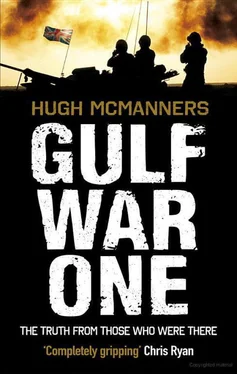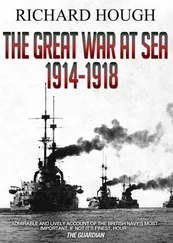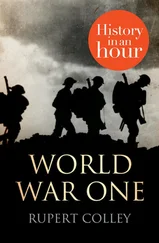Dr Mary McLoughlin
We were swimming one afternoon at the hotel we usually visited, when a bus stopped outside and some western women came in saying they needed milk and water for their children. We ran the short distance back to the hospital and got as much fresh water as we could from the shop, but when we got back, the bus was gone. It was fifty degrees in the middle of the day – it’s hard to imagine the extreme heat of the place. These women and children could not have survived very long without fluids, so we were terribly upset.
This really brought it home to us what was happening to the others, and how privileged we three hundred hospital and embassy staff were, still to wander freely round Baghdad. At this stage, any of the engineering staff who hadn’t been arrested were being extremely careful and were certainly not wandering around as we were.
Lance Corporal Roy Sellstrom
Pioneer Corps
I was in Northern Ireland, with 187 (Tancred) Company, 23 Group, Royal Pioneer Corps, guarding the logistic base that supports the whole of Northern Ireland. We’re nicknamed ‘Chunkies’, as we do all the man-intensive labouring jobs that no one else wants to do – like road construction, digging trenches, putting up tentage, mending airfields. The Royal Engineers do more technical tasks, with us doing the labouring.
Dr Mary McLoughlin
You knew the walls had ears and eyes, but not who the ears and eyes were. Officers came to the hospital who were clearly members of the Iraqi authorities – people we’d never seen before the war. We were told quite clearly that if we didn’t work in the hospital, we too would be sent out to the institutions as hostages. I had to make home visits, to see people who hadn’t turned up for work, then make a report on them. People were very much keeping an eye on us. We kept our noses out of this aspect of it as much as possible. But I never felt threatened inside the walls of the hospital.
There was, for a brief period, talk of us going on strike. But we were told going on strike was punishable by death, so we never raised that one again. Going to work each day was our only form of protection, and so that’s what we did.
Lieutenant Colonel Arthur Denaro
Commanding Officer, Queen’s Royal Irish Hussars
Generals and MoD officials had been declaring ‘Never again will we fight operations with tanks’. Then General Richard Trant mentioned that we might well be going.
Dr Mary McLoughlin
We were listening to Maggie Thatcher and George Bush, both on the radio non-stop, insisting that they weren’t going to let the fate of a thousand or so hostages in Iraq affect what they were doing. But in reality there were more like eight thousand hostages; but the fate of these hostages wasn’t going to interfere with their implementation of world democracy! This of course was a load of nonsense, as democracy had never been operating in Kuwait anyway.
Sergeant Major Johnny Muir
Regimental Quartermaster Sergeant Major, Queen’s Royal Irish Hussars
My job as Regimental Quartermaster Sergeant Major was to procure everything we’d need, but my only experience of the desert, apart from reading books about it, was a holiday in Tunisia in an air-conditioned coach visiting the various ancient ruins used by the German army in the Second World War.
Major David Potts
SO2 Army Logistics, Quartermaster General’s Department
Nobody had thought that the army in Germany might be used anywhere else, especially in the desert – and why should they? It was most unlikely that a crisis would develop requiring armour, and that the rest of NATO would agree it was worth the strategic risk of removing armoured forces from Europe. But was there risk to Germany? Margaret Thatcher had been more worried about the reunification of Germany, for goodness’ sake!
Brigadier Patrick Cordingley
Commander, 7th Armoured Brigade
The next morning, I went off to Corps HQ at Bielefeld to be ordered to war, an extraordinary sensation. Most of the Falkland veterans had moved on, so none of us had any combat experience. Doubts flooded into my mind: are we capable of doing this? Are we properly trained? The people who get to the top of the army are enormously self-confident, and tell everybody they know all the answers. I’m not one of those. I’m quite quiet, not naturally self-confident, and tend to think that I might not know all the answers.
The Corps Commander, General Guthrie, said we were going, that we’d be reinforced, that I’d go on a reconnaissance with Corps Headquarters Chief of Staff Mike Walker, then tell them who I’d be working with and where.
Sergeant Major Johnny Muir
Regimental Quartermaster Sergeant Major, Queen’s Royal Irish Hussars
I started measuring everyone for desert combat kit and other personal equipment, while the squadrons sorted out the tanks they’d taken over from the regiment we’d just replaced – lots of mechanical work and spare parts, before firing them on the ranges.
We also needed to increase our numbers from peacetime strength of around four hundred up to six hundred. People were drafted in from other regiments, like the Royal Tank Regiment, from Germany and the UK, in a gradual process. We knew most of them, especially people of my rank and status, so this trickle process went very smoothly.
Dr Mary McLoughlin
The BBC started broadcasting programmes about what we should be doing in the event of a nuclear attack. These programmes were so completely stupid that if they hadn’t made us cry, they made us laugh: things like we should fill the bath and get in before the bombs dropped. Of course in Iraq, because of the shortage of water, there aren’t any baths and all the houses have showers. And nobody said how long we were supposed to remain under the water when these attacks allegedly took place, so we had the choice of either being drowned or nuclear poisoned.
And it wasn’t very clear who was supposed to be nuclear’ing who either. Maybe this was based on the thought that the Allies’ reaction to the Kuwait invasion might involve this sort of thing. At this stage there was no allied military response taking place, so goodness knows what this was all about.
But we had absolutely no faith in Maggie Thatcher or George Bush senior. Rather than being worried about what Saddam Hussein would do, to be honest we were more worried about what the loonies in the West were going to do. We just wanted them not to attack, and to leave us alone.
Brigadier Patrick Cordingley
Commander, 7th Armoured Brigade
In Riyadh, the American build-up was very obvious – aircraft everywhere. We were briefed at the British Embassy, including a three-course lunch with wine and all the rest of it with the ambassador. Mike Walker and I then flew to Al Jubayl to meet the Marine commander who was to be my boss, Lieutenant General Walt Boomer.
Lance Corporal Roy Sellstrom
Pioneer Corps
A Pioneer company was to deploy straight away to Saudi Arabia. Paddy Haddock, our platoon commander and staff sergeant, listed everyone for this deployment, but told a group of us to stay behind, as the OC had a different task for us. In our company, everyone and his dog was trying to get to Saudi, so we were wondering whether we’d be going – or what was happening. Eventually Paddy Haddock came over to us and told us we’d been tasked to go to the Army War Graves Team.
Читать дальше












